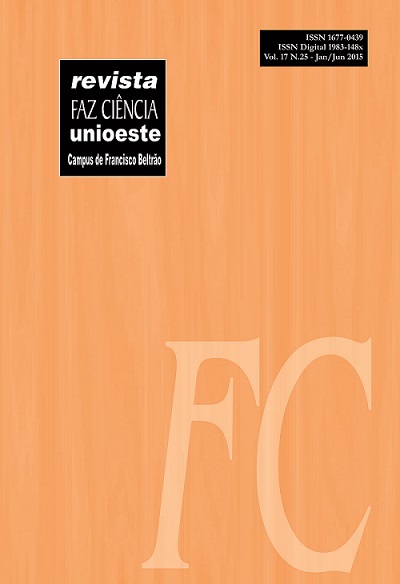THE ABSENCE OF THE SETTLER WOMAN ON THE NEWS IN RONDÔNIA: A REFLECTIVE STUDY ABOUT THE NEWS ONLINE
DOI:
https://doi.org/10.48075/rfc.v17i25.14867Keywords:
Mulheres assentadas. Mídia. Cultura. Políticas Públicas.Abstract
This article aims to identify and understand how the online media from 2011 to 2013 expresses itself in relation to the settler women in Rondônia, specifically the ones in Porto Velho, and also the relationship these women establish in the modern current society. Once understood that the cultural industry builds the reality according to its ideological interests, sometimes disciplining, sometimes standardizing behaves, it is vital to understand the role of the women in the settlements since the cultural industry intervenes in their modus vivendi, and somehow weaken their human identity. Also, we intend from this research to create perspectives that investigate the oppressive media discourse related to the settler women as oppressive representation against their class and gender.Downloads
Published
01-01-2000
How to Cite
SIQUEIRA, E. M. de; BUENO, J. L. P. THE ABSENCE OF THE SETTLER WOMAN ON THE NEWS IN RONDÔNIA: A REFLECTIVE STUDY ABOUT THE NEWS ONLINE. Revista Faz Ciência, [S. l.], v. 17, n. 25, p. 148, 2000. DOI: 10.48075/rfc.v17i25.14867. Disponível em: https://e-revista.unioeste.br/index.php/fazciencia/article/view/14867. Acesso em: 13 aug. 2025.
Issue
Section
Artigos
License
Aviso de Direito Autoral Creative Commons
Política para Periódicos de Acesso Livre
Autores que publicam nesta revista concordam com os seguintes termos:
1. Autores mantém os direitos autorais e concedem à revista o direito de primeira publicação, com o trabalho simultaneamente licenciado sob a Licença Creative Commons Attribution que permite o compartilhamento do trabalho com reconhecimento da autoria e publicação inicial nesta revista.2. Autores têm autorização para assumir contratos adicionais separadamente, para distribuição não-exclusiva da versão do trabalho publicada nesta revista (ex.: publicar em repositório institucional ou como capítulo de livro), com reconhecimento de autoria e publicação inicial nesta revista.
3. Autores têm permissão e são estimulados a publicar e distribuir seu trabalho online (ex.: em repositórios institucionais ou na sua página pessoal) a qualquer ponto antes ou durante o processo editorial, já que isso pode gerar alterações produtivas, bem como aumentar o impacto e a citação do trabalho publicado (Veja O Efeito do Acesso Livre).
Licença Creative Commons
Esta obra está licenciada com uma Licença Creative Commons Atribuição-NãoComercial-CompartilhaIgual 4.0 Internacional, o que permite compartilhar, copiar, distribuir, exibir, reproduzir, a totalidade ou partes desde que não tenha objetivo comercial e sejam citados os autores e a fonte.


